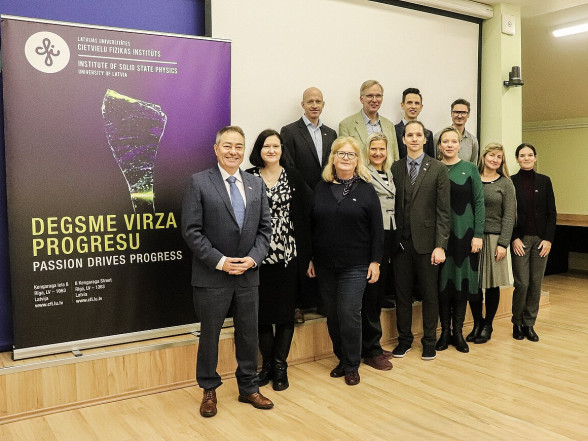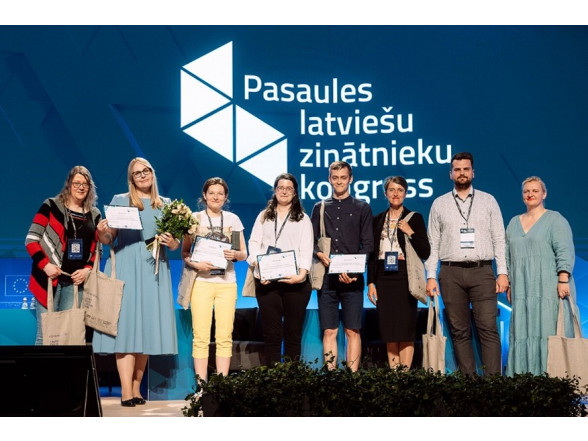On November 14, the Institute of Solid State Physics at the University of Latvia (ISSP UL) welcomed a distinguished Swiss delegation aimed at bolstering scientific collaboration between Latvia and Switzerland within the framework of the “Applied Research” program. This initiative promotes synergies in innovative materials, information and communication technologies, and smart energy solutions.
The delegation comprised key representatives, including Laurence Mortier and Nicolas Guigas from the Swiss Secretariat for Economic Affairs (SECO), alongside Christoph Liechti and Sandra Prince from the Swiss Cooperation Office. They were joined by Latvian officials: Diāna Rancāne, Director of the EU Fund Investment Management Department at the Ministry of Finance; Diāna Āboliņa, Head of the EEA, Norway, and Switzerland Investment Division; and Gita Tenisone, Senior Expert within the same division. The Ministry of Education and Science was represented by Lauma Sīka, Deputy Director of the Department of Higher Education, Science, and Innovation, and Antra Jansone, Senior Expert in the EEA and Norway Financial Instrument Program.
Andris Anspoks, Director of ISSP UL, provided the delegation with insights into the institute’s scientific achievements, while representatives from the Ministry of Education and Science offered a comprehensive overview of the “Applied Research” program.
The event featured contributions from Gints Kučinskis, head of the Energy Materials Laboratory; Ainārs Knoks, a researcher from the same laboratory; Kaspars Ozols, Deputy Director of Development and Senior Researcher at the Institute of Electronics and Computer Science (EDI); and Professor Andris Šutka from Riga Technical University. Scientists from ISSP UL presented their ambitious plans focused on materials for batteries and hydrogen production, while EDI representatives discussed their innovative projects centered on smart grid technologies.
Research on battery materials and hydrogen production is currently being conducted in collaboration with the Swiss Paul Scherer Institute. This project aims to develop advanced catalysts for hydrogen production and enhance energy storage in rechargeable batteries, significantly strengthening the Baltic region’s expertise in energy storage—a critical step towards reducing reliance on fossil fuels.
Gints Kučinskis remarked, “This project signifies a major leap forward in both research and the education of students and emerging scientists, fostering a deeper understanding of materials and technologies for renewable energy storage in the Baltic region. Switzerland’s support and our newly established partnership are invaluable, as they will enhance our capacity to address both national and global energy challenges.”
The visit to the ISSP UL will strengthen cooperation between Latvia and Switzerland, particularly in materials science and energy, and exemplifies the joint efforts of both countries to foster innovation and sustainable energy solutions.



